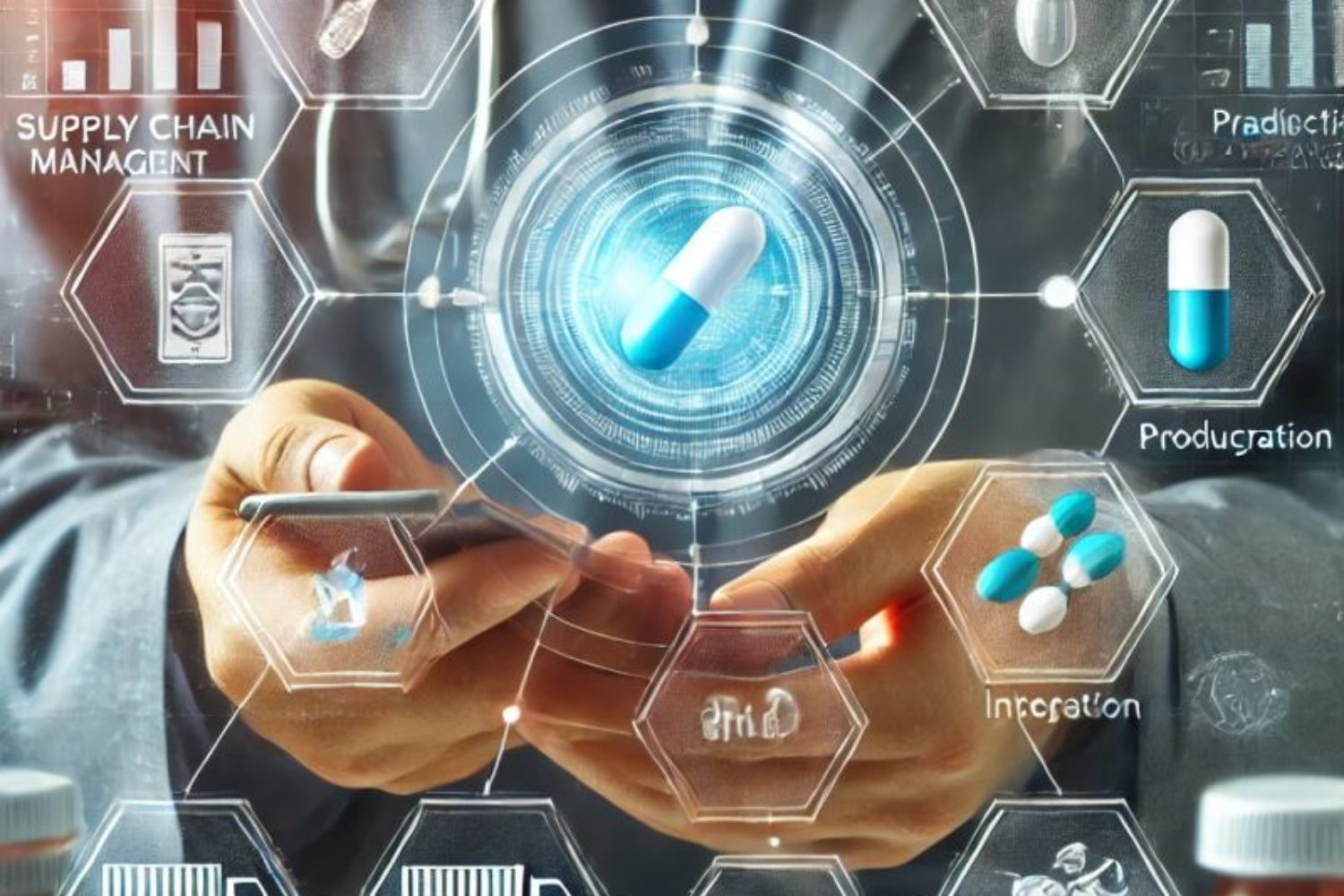The pharmaceutical industry is experiencing a significant transformation, driven by the principles of Pharma 4.0. This shift represents the integration of advanced digital technologies such as AI, IoT, and blockchain into every aspect of pharmaceutical manufacturing and distribution, with the ultimate goals of improving efficiency, ensuring compliance, and enhancing patient safety. In this blog, we will explore the key terms and concepts associated with Pharma 4.0, along with use cases that demonstrate its application across the industry.
Glossary of Terms
- Pharma 4.0:
The application of Industry 4.0 concepts to the pharmaceutical industry, involving the use of digital technologies to optimize operations, ensure compliance, and enhance patient safety. - Patient Safety:
Measures and protocols designed to prevent harm to patients within healthcare and pharmaceutical processes. - Patient Centricity:
A healthcare approach that focuses on the needs, values, and preferences of patients in all aspects of care. - Serialization:
Assigning a unique identifier to each pharmaceutical product package to ensure traceability throughout the supply chain. - Track and Trace:
The process of monitoring the movement of pharmaceutical products from manufacture to end consumer to ensure authenticity and compliance.
Examples for Use Cases on Pharma 4.0
- Patient Safety
- AI-Driven Systems:
Implementing AI algorithms to predict and prevent adverse drug reactions, thereby enhancing patient safety. - Real-Time Data Analytics:
Using IoT sensors to monitor patient conditions and provide immediate feedback on potential health risks.
- Patient Centricity
- Personalized Digital Health Tools:
Leveraging AI to offer patients personalized medication information and reminders, ensuring adherence to prescribed treatments. - Telemedicine Integration:
Incorporating patient data into telemedicine platforms to provide customized care recommendations based on real-time health monitoring.
- AI in Pharmaceuticals
- Drug Discovery:
- Utilizing AI to predict the efficacy of new drug compounds, significantly reducing the time and cost associated with bringing new medications to market.
- Predictive Maintenance:
AI systems monitor manufacturing equipment to predict and prevent failures, ensuring continuous production without unexpected downtime.
- IoT in Pharmaceuticals
- Smart Sensors:
Implementing IoT devices to monitor environmental conditions such as temperature and humidity in storage facilities, ensuring drug integrity is maintained. - Supply Chain Monitoring:
Using IoT to track and trace pharmaceutical products through the supply chain, ensuring that drugs are stored and transported under optimal conditions.
- Blockchain in Pharmaceuticals
- Authentication:
Blockchain technology provides an immutable record of a drug’s journey through the supply chain, ensuring that it is authentic and has not been tampered with. - Recall Management:
Blockchain allows for the rapid identification and recall of compromised or counterfeit drugs, protecting patients and preserving brand integrity.
Examples by Industry Segment
Point of Manufacture
- Serialization and Aggregation:
Ensuring product authenticity and compliance by assigning unique identifiers to each product at the manufacturing stage.
Point of Dispense
- Verification Systems:
Implementing digital systems at pharmacies to verify that the correct medications are dispensed to patients, reducing the risk of medication errors.
Point of Sale
- Consumer Verification Tools:
Providing patients with mobile apps to verify the authenticity of their medications before purchase, enhancing trust in the pharmaceutical supply chain.
Point of Care
- Integrated Drug Information Systems:
Allowing healthcare providers real-time access to comprehensive drug information, improving patient care and safety.
Cold Chain
- IoT-Enabled Monitoring:
Using smart sensors to ensure that temperature-sensitive drugs are kept within required conditions during transportation, preventing spoilage.
Supply Chain
- End-to-End Traceability:
Utilizing blockchain for transparent and secure tracking of pharmaceutical products throughout the entire supply chain.
Digital Leaflets
- Tailored Drug Information:
Providing patients with access to digital versions of drug information leaflets, customized to their language and specific needs.
Product Master Data
- Centralized Management:
Ensuring consistency and accuracy of product information across all markets and stakeholders through centralized master data management systems.

- AI-Enabled Recall Systems:
Rapidly identifying and recalling defective or compromised products, protecting patient safety and brand reputation.
Counterfeit Deterrence
- Serialization Systems:
Using unique identifiers and blockchain to prevent counterfeit drugs from entering the supply chain.
Diversion Detection
- Real-Time Monitoring:
Implementing advanced analytics to detect and prevent the unauthorized diversion of legitimate drugs for illicit use.
Conclusion
Pharma 4.0 is revolutionizing the pharmaceutical industry by integrating advanced technologies that not only enhance operational efficiency but also ensure the highest standards of patient safety and regulatory compliance. By embracing these innovations, pharmaceutical companies can build a more secure, transparent, and patient-centric industry.


